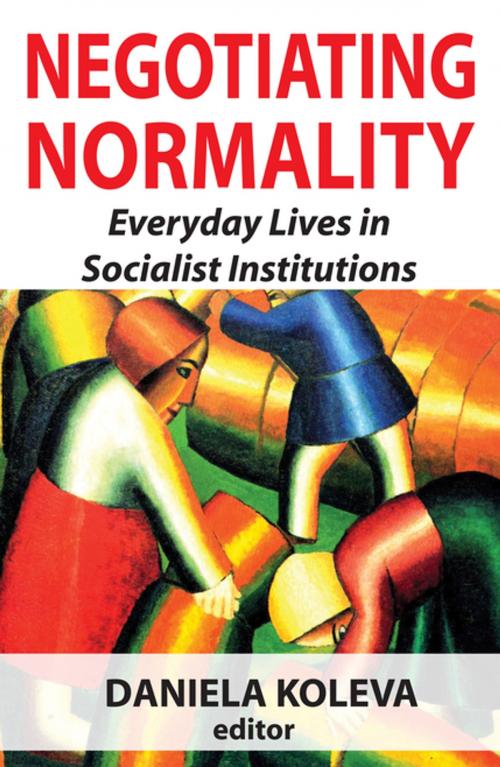Negotiating Normality
Everyday Lives in Socialist Institutions
Nonfiction, Social & Cultural Studies, Social Science, Anthropology, History| Author: | Daniela Koleva | ISBN: | 9781351503280 |
| Publisher: | Taylor and Francis | Publication: | July 12, 2017 |
| Imprint: | Routledge | Language: | English |
| Author: | Daniela Koleva |
| ISBN: | 9781351503280 |
| Publisher: | Taylor and Francis |
| Publication: | July 12, 2017 |
| Imprint: | Routledge |
| Language: | English |
This book is about state socialism, not as a political system, but as an "ecosystem" of interactions between the state and the citizens it sought to control. It includes case studies that demonstrate how the major ideological principles of socialism translated into motives guiding people's lives.
This unique post-revisionist study focuses on people's lives and experiences rather than political systems. The studies are grouped around three common elements—socialist labor, the new socialist man, and the socialist way of life. Using first-hand accounts, the authors find minute deviations from the norms that eventually lead to renegotiation of the norms themselves. Focusing on routines, not extremes, they present socialism in its "normal" state.
The volume demonstrates different national strategies for dealing with the past in the post-socialist world. Studies of the socialist past may strive to be objective, but their messages tend to be complex. Rather than arriving at one truth about the nature of socialism, this volume explores the many ways people have survived the system.
This book is about state socialism, not as a political system, but as an "ecosystem" of interactions between the state and the citizens it sought to control. It includes case studies that demonstrate how the major ideological principles of socialism translated into motives guiding people's lives.
This unique post-revisionist study focuses on people's lives and experiences rather than political systems. The studies are grouped around three common elements—socialist labor, the new socialist man, and the socialist way of life. Using first-hand accounts, the authors find minute deviations from the norms that eventually lead to renegotiation of the norms themselves. Focusing on routines, not extremes, they present socialism in its "normal" state.
The volume demonstrates different national strategies for dealing with the past in the post-socialist world. Studies of the socialist past may strive to be objective, but their messages tend to be complex. Rather than arriving at one truth about the nature of socialism, this volume explores the many ways people have survived the system.















